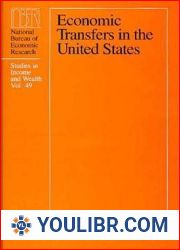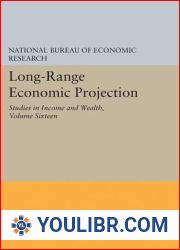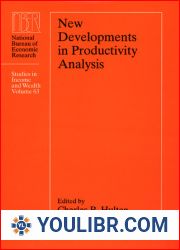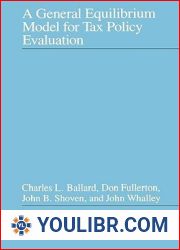
BOOKS - Economic Aspects of Obesity (National Bureau of Economic Research Conference ...

Economic Aspects of Obesity (National Bureau of Economic Research Conference Report)
Author: Michael Grossman
Year: April 15, 2011
Format: PDF
File size: PDF 3.7 MB
Language: English
Year: April 15, 2011
Format: PDF
File size: PDF 3.7 MB
Language: English
The Plot: In the not-too-distant future, the world is facing an unprecedented crisis - the rapid rise of obesity rates. The once-thriving nation of America has seen a drastic increase in the number of obese individuals, with adult obesity rates doubling and childhood obesity rates nearly tripling in just three short decades. This epidemic has led to a staggering amount of medical expenditures, productivity loss, and stress on the healthcare system. In response, economists have turned their attention to understanding the economic factors that contribute to this issue, seeking to identify the causes and potential solutions. Through the lens of Economic Aspects of Obesity, we discover that the choices we make as individuals are heavily influenced by our economic environments. Food prices, the availability of food outlets and recreational facilities, health insurance, and even minimum wage levels all play a significant role in shaping our behaviors and ultimately, our weight. This comprehensive analysis provides a strong foundation for evaluating the costs and benefits of various proposals aimed at controlling obesity rates.
В недалеком будущем мир столкнулся с беспрецедентным кризисом - быстрым ростом уровня ожирения. В некогда процветающей стране Америки резко возросло число людей, страдающих ожирением, причем уровень ожирения среди взрослых удвоился, а уровень детского ожирения почти утроился всего за три коротких десятилетия. Эта эпидемия привела к ошеломляющему количеству медицинских расходов, потере производительности и стрессу для системы здравоохранения. В ответ экономисты обратили свое внимание на понимание экономических факторов, которые способствуют этому вопросу, стремясь выявить причины и потенциальные решения. Через призму экономических аспектов ожирения мы обнаруживаем, что выбор, который мы делаем как личности, сильно зависит от нашей экономической среды. Цены на продукты питания, наличие точек питания и мест отдыха, медицинское страхование и даже уровень минимальной заработной платы - все это играет важную роль в формировании нашего поведения и, в конечном итоге, нашего веса. Этот комплексный анализ обеспечивает прочную основу для оценки затрат и выгод от различных предложений, направленных на контроль уровня ожирения.
Dans un avenir proche, le monde est confronté à une crise sans précédent - une augmentation rapide des taux d'obésité. Dans un pays autrefois prospère des États-Unis, le nombre de personnes obèses a considérablement augmenté, le taux d'obésité adulte ayant doublé et le taux d'obésité infantile ayant presque triplé en seulement trois décennies. Cette épidémie a entraîné des dépenses de santé considérables, une perte de productivité et un stress pour le système de santé. En réponse, les économistes ont attiré leur attention sur la compréhension des facteurs économiques qui contribuent à cette question, en cherchant à identifier les causes et les solutions potentielles. À travers le prisme des aspects économiques de l'obésité, nous constatons que les choix que nous faisons en tant qu'individus dépendent fortement de notre environnement économique. s prix de la nourriture, la disponibilité des points de repas et des lieux de repos, l'assurance maladie et même le niveau du salaire minimum jouent tous un rôle important dans la formation de notre comportement et, en fin de compte, de notre poids. Cette analyse intégrée fournit une base solide pour évaluer les coûts et les avantages des différentes propositions visant à contrôler le taux d'obésité.
En un futuro próximo, el mundo se enfrenta a una crisis sin precedentes: el rápido aumento de los niveles de obesidad. En el otrora próspero país de Estados Unidos, el número de personas obesas aumentó drásticamente, con tasas de obesidad adulta duplicadas y tasas de obesidad infantil casi triplicadas en solo tres décadas cortas. Esta epidemia ha provocado una cantidad asombrosa de gastos médicos, pérdida de productividad y estrés para el sistema de salud. En respuesta, los economistas centraron su atención en comprender los factores económicos que contribuyen al tema, buscando identificar causas y posibles soluciones. A través del prisma de los aspectos económicos de la obesidad, descubrimos que las decisiones que hacemos como individuos dependen mucho de nuestro entorno económico. precios de los alimentos, la disponibilidad de comidas y lugares de descanso, el seguro médico e incluso el nivel del salario mínimo juegan un papel importante en la formación de nuestro comportamiento y, en última instancia, de nuestro peso. Este análisis integral proporciona una base sólida para evaluar los costos y beneficios de las diferentes propuestas dirigidas a controlar los niveles de obesidad.
No futuro próximo, o mundo enfrenta uma crise sem precedentes, o rápido crescimento dos níveis de obesidade. No país outrora próspero da América, o número de obesos aumentou drasticamente, com o dobro da obesidade entre adultos e a obesidade infantil quase triplicando em apenas três décadas. Esta epidemia causou uma quantidade surpreendente de gastos médicos, perda de produtividade e estresse para o sistema de saúde. Em resposta, os economistas chamaram a atenção para a compreensão dos fatores econômicos que contribuem para a questão, buscando identificar as causas e as soluções potenciais. Através do prisma dos aspectos econômicos da obesidade, descobrimos que as escolhas que fazemos como indivíduos dependem fortemente do nosso ambiente econômico. Os preços dos alimentos, a disponibilidade de locais de alimentação e lazer, o seguro-saúde e até o nível do salário mínimo são importantes para a formação do nosso comportamento e, eventualmente, do nosso peso. Esta análise completa fornece uma base sólida para estimar os custos e benefícios de várias propostas para controlar os níveis de obesidade.
In nicht allzu ferner Zukunft steht die Welt vor einer beispiellosen Krise - einem rasanten Anstieg der Fettleibigkeitsraten. In dem einst wohlhabenden Land Amerika ist die Zahl der übergewichtigen Menschen dramatisch gestiegen, wobei sich die Fettleibigkeitsrate bei Erwachsenen verdoppelt und die Fettleibigkeitsrate bei Kindern in nur drei kurzen Jahrzehnten fast verdreifacht hat. Diese Epidemie hat zu einer erstaunlichen Menge an medizinischen Kosten, Produktivitätsverlusten und Stress für das Gesundheitssystem geführt. Als Reaktion darauf haben sich die Ökonomen darauf konzentriert, die wirtschaftlichen Faktoren zu verstehen, die zu diesem Thema beitragen, und versuchen, Ursachen und mögliche Lösungen zu identifizieren. Durch das Prisma der wirtschaftlichen Aspekte von Fettleibigkeit stellen wir fest, dass die Entscheidungen, die wir als Individuen treffen, stark von unserem wirtschaftlichen Umfeld abhängen. bensmittelpreise, Verfügbarkeit von Essens- und Freizeiteinrichtungen, Krankenversicherung und sogar die Höhe des Mindestlohns spielen eine wichtige Rolle bei der Gestaltung unseres Verhaltens und letztendlich unseres Gewichts. Diese umfassende Analyse bietet eine solide Grundlage für die Bewertung von Kosten und Nutzen verschiedener Vorschläge zur Bekämpfung der Fettleibigkeit.
W niedalekiej przyszłości świat stoi w obliczu bezprecedensowego kryzysu - gwałtownego wzrostu poziomu otyłości. Niegdyś zamożny naród Ameryki odnotował dramatyczny wzrost liczby otyłych ludzi, przy czym w ciągu zaledwie trzech krótkich dziesięcioleci wskaźnik otyłości u dorosłych wzrósł dwukrotnie, a wskaźnik otyłości u dzieci prawie trzykrotnie. Ta epidemia doprowadziła do oszałamiającej ilości kosztów medycznych, utraconej produktywności i stresu na systemie opieki zdrowotnej. W odpowiedzi ekonomiści zwrócili uwagę na zrozumienie czynników gospodarczych, które przyczyniają się do tego problemu, dążąc do określenia przyczyn i potencjalnych rozwiązań. Poprzez soczewkę ekonomicznych aspektów otyłości stwierdzamy, że wybory, które dokonujemy jako jednostki, są bardzo zależne od naszego środowiska gospodarczego. Ceny żywności, dostępność punktów sprzedaży żywności i obiektów rekreacyjnych, ubezpieczenie zdrowotne, a nawet minimalny poziom płac odgrywają ważną rolę w kształtowaniu naszego zachowania i ostatecznie naszej wagi. Ta kompleksowa analiza stanowi solidną podstawę do oceny kosztów i korzyści różnych wniosków mających na celu kontrolę poziomu otyłości.
''
Yakın gelecekte, dünya benzeri görülmemiş bir krizle karşı karşıya - obezite düzeyinde hızlı bir artış. Bir zamanlar müreffeh olan Amerika ülkesi, obez insanların sayısında dramatik bir artış gördü; yetişkin obezite oranları ikiye katlandı ve çocukluk çağı obezite oranları sadece üç kısa on yılda neredeyse üç katına çıktı. Bu salgın, şaşırtıcı miktarda tıbbi maliyete, üretkenlik kaybına ve sağlık sistemi üzerinde strese yol açmıştır. Buna karşılık, ekonomistler dikkatlerini bu konuya katkıda bulunan ekonomik faktörleri anlamaya, nedenleri ve potansiyel çözümleri belirlemeye çalışmışlardır. Obezitenin ekonomik yönlerinin merceğinden, bireyler olarak yaptığımız seçimlerin ekonomik çevremize büyük ölçüde bağlı olduğunu görüyoruz. Gıda fiyatları, gıda satış yerleri ve eğlence tesislerinin mevcudiyeti, sağlık sigortası ve hatta asgari ücret seviyesi, davranışlarımızı ve nihayetinde ağırlığımızı şekillendirmede önemli bir rol oynamaktadır. Bu kapsamlı analiz, obezite seviyelerini kontrol etmeyi amaçlayan çeşitli önerilerin maliyetlerini ve faydalarını değerlendirmek için sağlam bir temel sağlar.
في المستقبل القريب، يواجه العالم أزمة غير مسبوقة - زيادة سريعة في مستوى السمنة. شهدت دولة أمريكا التي كانت مزدهرة ذات يوم ارتفاعًا كبيرًا في عدد الأشخاص الذين يعانون من السمنة المفرطة، حيث تضاعفت معدلات السمنة لدى البالغين وتضاعفت معدلات السمنة لدى الأطفال ثلاث مرات تقريبًا في ثلاثة عقود قصيرة فقط. وقد أدى هذا الوباء إلى قدر هائل من التكاليف الطبية، وفقدان الإنتاجية والضغط على نظام الرعاية الصحية. رداً على ذلك، حول الاقتصاديون انتباههم إلى فهم العوامل الاقتصادية التي تسهم في هذه القضية، سعياً لتحديد الأسباب والحلول المحتملة. من خلال عدسة الجوانب الاقتصادية للسمنة، نجد أن الخيارات التي نتخذها كأفراد تعتمد بشكل كبير على بيئتنا الاقتصادية. تلعب أسعار المواد الغذائية وتوافر منافذ الطعام والمرافق الترفيهية والتأمين الصحي وحتى الحد الأدنى للأجور دورًا مهمًا في تشكيل سلوكنا وفي النهاية وزننا. يوفر هذا التحليل الشامل أساسًا صلبًا لتقييم تكاليف وفوائد المقترحات المختلفة التي تهدف إلى التحكم في مستويات السمنة.
















































